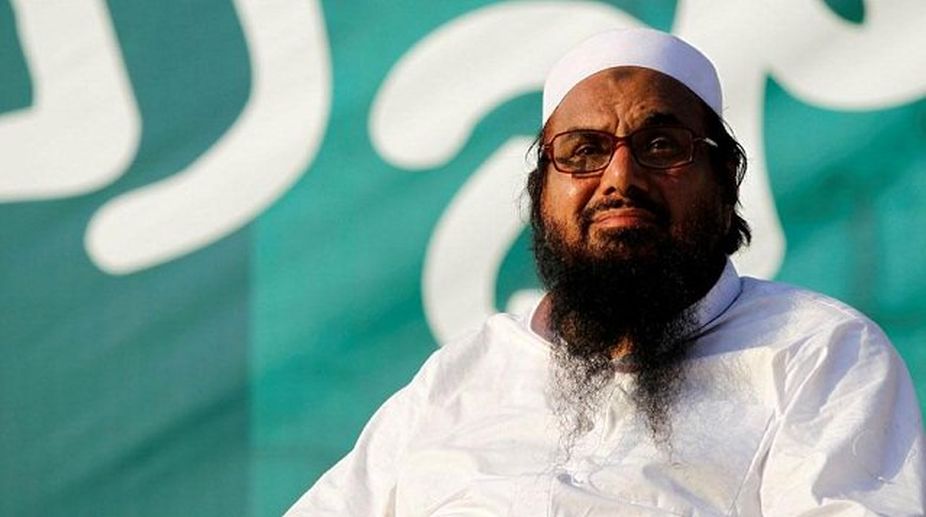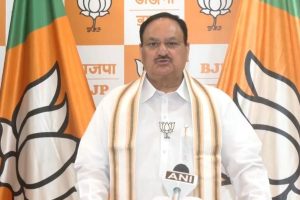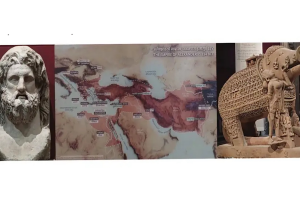Despite robust posturing, Pakistan appears to be caving in to American pressure. President Trump, in his first prime-time address, announced his policy towards Afghanistan and South-east Asia. He hit out at Pakistan for providing safe haven to what he called the “agents of chaos” that killed Americans in Afghanistan.
He warned that Pakistan has much to lose by harbouring terrorists and then publicly articulated what his predecessors had said in private. He also announced that US troops would remain in Afghanistan without a timeframe. Before this stinging indictment of Pakistan, President Trump had received a report jointly compiled by scholars and experts from Asia Foundation Centre, Heritage Foundation, and Hudson Institute. The report advised the President to state that he intends to review the intelligence of Pakistan’s involvement in supporting terrorism much more critically than his predecessors. The group acknowledged that there is no silver bullet that can change the decade-old Pakistan policy of supporting terrorists.
But the administration must make it clear that Pakistan’s status as a major non-NATO power would be in serious jeopardy, unless it supports US objectives relating to counter-terrorism. Initially the report was greeted with bitterness and anger across the Radcliffe Line. The military brass, including the Pakistan’s Army Chief, as well as political leaders and clerics have said that the US has not appreciated Pakistan’s contribution in the war against terrorism. They have criticised the US for bullying Pakistan, despite its history of cooperating with America in conflicts. Raza Rabani, the leftleaning Chairman of the Pakistan Senate, invoked the legacy of Vietnam and said that Trump will transform Pakistan into a “graveyard for American troops”.
Fears have been expressed that India, the US and Afghanistan are trying to destabilise and destroy Pakistan. China, its allweather ally, as expected, has stepped forward to defend Pakistan. Chinese Foreign Ministry’s spokesman Hua Chunying has iterated that Pakistan is in the frontline in the fight against terrorism and has contributed its share in the task of upholding peace and stability in the region. The key question that arises is whether America is now serious and decisive in taking on Pakistan and then carry out the threats advanced by President Trump. Earlier, President Obama had told his advisers in 2009 that “we need to make clear to people that the cancer is in Pakistan”, sending its CIA Chief and National Security Adviser to deliver the message. The Secretary of State, Hillary Clinton, had warned in 2011 that “you can’t keep a snake in your backyard and hope that it will bite your neighbour”.
The situation this time appears to be somewhat different. Military strategists and experts are of the view that infusion of more American troops in Afghanistan will not serve any purpose, if Pakistan continues to harbour and support the Afghan Taliban.
America has already started tightening the screws on Pakistan. It has given the country a taste of his financial vulnerability by banning operations of Habib Bank in the US. This bank is one of Pakistan’s leading financial institutions.
The Trump administration has also indicated to Pakistan that it has other weapons in its armoury like stripping the country of its status as a non-NATO ally and then impose a ban on suspected ISI activists engaged in undercover operations in America. Further, if the US declares Pakistan as a terror state, it will dry up billions of dollars by way of IMF loans and Pakistan’s access to global finance.
There is also the possibility of a western visa ban. Many of Pakistan’s senior political and military leaders own prime property in London and in the US. When things get difficult in their own country, they camp in the West. Many civilian leaders believe that by supporting the terrorist groups at the bidding of the army and ISI, Pakistan is isolating itself from the international community and hurting its own interest.
Trump and his advisors are further annoyed with Pakistan whose nuclear secrets and their passage to North Korea are being recalled against the present backdrop of the missile tests and other antics by the North Korean dictator. Apologists for Pakistan in the Pentagon and the State Department have argued that excessive might eventually posit Pakistan in China’s camp. But China will not be able to do much to stave off the financial meltdown if the US decides to effect a squeeze. Beijing is also concerned over the growing ascendancy of the jihadis in Pakistan.
However, the nub of the matter is that as China challenges the post-Cold War global order, Pakistan has become its indispensable ally. Andrew Small in his well researched book, China-Pakistan Axis ~ Asias New Geopolitics has pointed out that an alliance between Pakistan and China has now become stronger and Beijing wants Islamabad to o play its role that China wants it to play. Another matter of concern for Pakistan is that America now wants India to play an important role in Afghanistan. The prospect of India with a major footprint in Afghanistan has alarmed Pakistan, according to Michel Kugelman of the Wilson Centre. Pakistan fears that its eternal enemy, India, might use Afghanistan as a base to meddle in Pakistan’s affairs, notably by extending support to the separatists in Balochistan.
No wonder Pakistan supports groups like the Haqqanis that promote Pakistan’s interest of keeping India at bay in Afghanistan. The US Defence Secretary, Jim Mattis, in his testimony before the American Senate has said that he is prepared to give Pakistan one last chance and the US has an “enormously powerful number of weapons” if Pakistan does not follow through and be a better promoter of stability in the region. Pakistan’s civilian leaders are willing to cooperate with America and change its policy of coddling the terrorists.
Foreign Minister Khwaja Asif during his visit to the USA reportedly admitted that these terror groups have become liabilities, but Pakistan is finding it difficult to control the “monsters” that it has created. He also said that if the US provides evidence of Haqqani networks operating in Pakistan, the latter will take steps to destroy them. Now Islamabad has helped to secure the release of an American-Canadian couple in terrorist custody in Afghanistan with a view to ingratiating itself to Washington. It remains to be seen if this is just a face-saving and self-serving exercise and the Pakistan army is really willing to dump the Haqqani network which has been viewed as the “fighting arm of the ISI”. President Trump has lauded Pakistan’s cooperation but it remains to be seen how far the country is playing a double game as before.
It cannot completely dump them because of the fear that the Afghan Taliban will join hands with the Pakistani Taliban (Tahreek-i-Taliban) and create major problems for the army. ISI may try the familiar ruse of asking them to lie low till the storm blows over.
Hence strict American surveillance is needed to ensure that Pakistan gives up the perfidious game of speaking and acting differently. As regards the Laskar-eToiba and Jaish-e-Mohammad , Pakistan’s policy will remain unchanged. The army is now trying to bring them to the mainstream. Milli Muslim League (MML) the political front of Hafiz Saeed led Jamat-ul-Dan has applied for registration as a mainstream political party. Pakistan intends to release Hafiz Sayeed from house arrest, and hence for India there will be no respite from cross-border terrorism.
(The writer is Senior Fellow, Institute of Social Sciences; former Director-General, National Human Rights Commission; and former Director, National Police Academy)











